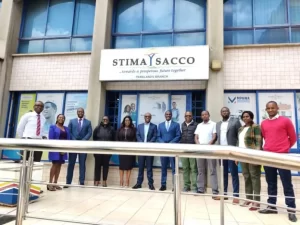The World Health Organization (WHO) estimates that oral diseases affect nearly 3.5 billion people globally. That’s close to half of the world’s estimated 7.7 billion people. Dental caries, also known as tooth decay or dental cavities, is the most common untreated health condition in the world, according to the Global Burden of Disease 2019 Report.
The rise in cases of tooth decay has been linked to changes in feeding and snacking habits, which have evolved due to factors such as higher disposable incomes, tighter work routines, and cultural changes that have come with urbanization and globalization. People are feeding and snacking more frequently and often on the go. Without proper oral health practices, this increases the risk of plaque build-up and can be bad for your teeth by predisposing you to tooth decay.
As the world marks World Oral Health Day, observed annually on March 20, below are top tips to improve your oral health courtesy of the Wrigley Oral Healthcare Program, a global oral health initiative by Mars Wrigley.
- Brush your teeth regularly and correctly
Dentists recommend brushing your teeth twice a day with a fluoride-based toothpaste to keep tooth decay at bay. The process of brushing your teeth should take at least two minutes. The technique of brushing also matters and there are plenty of free online videos from dental associations demonstrating how to brush correctly.
It’s important for adults to lead by example in households, as many children imitate what they see grownups doing. Kids are seven times more likely to skip toothbrushing if their parents do too, according to the FDI World Dental Federation. The adult population therefore has a responsibility to take up the challenge and encourage children to pick up the right habits.
- Understand the science behind sugar free gum
Did you know that chewing sugar free gum helps prevent tooth decay? Most people chew gum to freshen breath before an important meeting, to burn up some nervous energy, or just because they like the taste. Few realize there’s extensive good science backing up the benefits of chewing sugar-free gum.
If you feed regularly, chewing sugar free gum for 20 minutes after snacks and meals can help protect teeth. The oral healthcare benefits of chewing sugar- free gum brands like Orbit are today recognized and supported by regulatory authorities, an increasing number of governments, FDI World Dental Federation and nearly 20 national dental associations worldwide.
- Visit a dentist regularly
Poor oral health seeking behaviors are partly to blame for the high prevalence of oral diseases such as tooth decay. Most people often seek treatment for oral diseases when complications arise or worsen, instead of seeing a dentist regularly as recommended by health experts.
Early detection of oral health issues can help reduce the risk of serious complications in future. If left untreated, oral diseases can have further consequences on your general health. Good oral health not only enables you to functionally perform as a human being (speaking, smiling, smelling, eating), but is also important for communication and human relationships. Our vision of ourselves and how we are seen by others are all influenced by our oral appearance. Oral health outcomes can have implications for one’s mental health and ability to socialize.
- Discuss your health insurance options
Paying for dental visits out of pocket can strain household budgets. It is therefore important to discuss your health insurance options with your employer or insurance provider. There are various options in the Kenyan market tailored to the needs and budgets of different households. Having a cover not only eases the financial burden associated with accessing oral healthcare but can also help improve oral health seeking behaviors as people will more readily see a dentist if they know they are insured.
There is, however, still a huge financing gap as many people in low-income areas and rural economies cannot access insurance covers. This leaves them at great risk. That is why the Wrigley Oral Healthcare Program recently partnered with the Kenya Dental Association to bring free oral healthcare to communities in Lamu and raise awareness about good oral health practices.
“Our dentists and medical team screened patients, performed minor oral surgeries, and distributed medicine all through the week of March 20. We reached a total of 917 patients in the islands of Lamu, Faza and Mpeketoni,” said KDA Secretary General Dr. Douglas Oramis.
“We continue to support oral health in Kenya and globally through our Wrigley Oral Healthcare Program, partnering with dental professionals to drive positive societal impact and raise awareness about the oral health benefits of chewing sugar free gum. We thank our partners at KDA for working with us on this important initiative,” said Ismael Bello, General Manager Sub-Saharan Africa, Mars Wrigley.
The company’s 2023 outreach with KDA builds on the success of a similar program in 2022 which impacted 537 patients in Lamu. The island is one of the regions impacted by poor oral health seeking behaviors due to socioeconomic factors, making the interventions in 2022 and 2023 by KDA and partners such as Mars Wrigley timely and impactful to the local community.

















